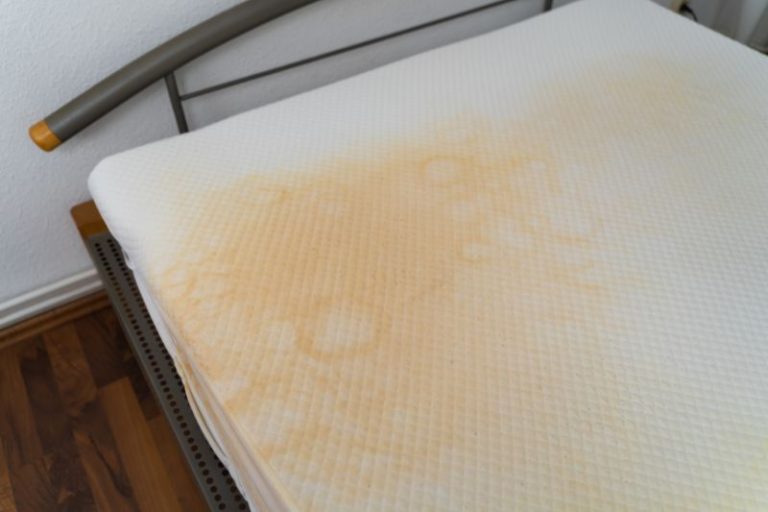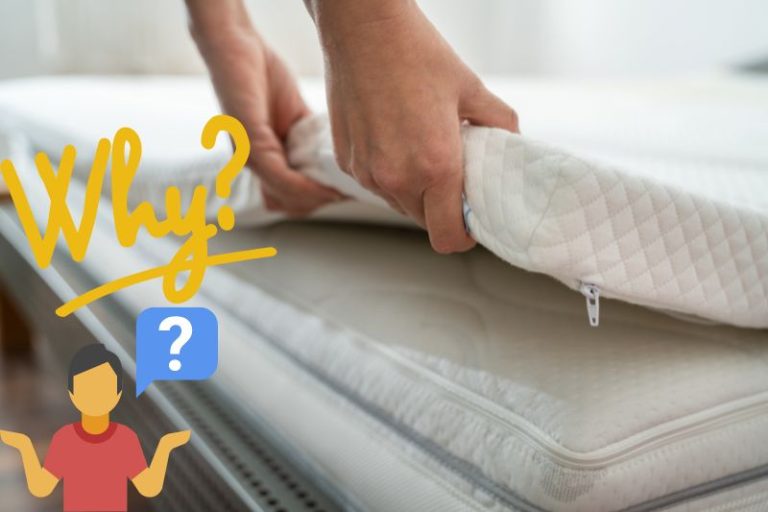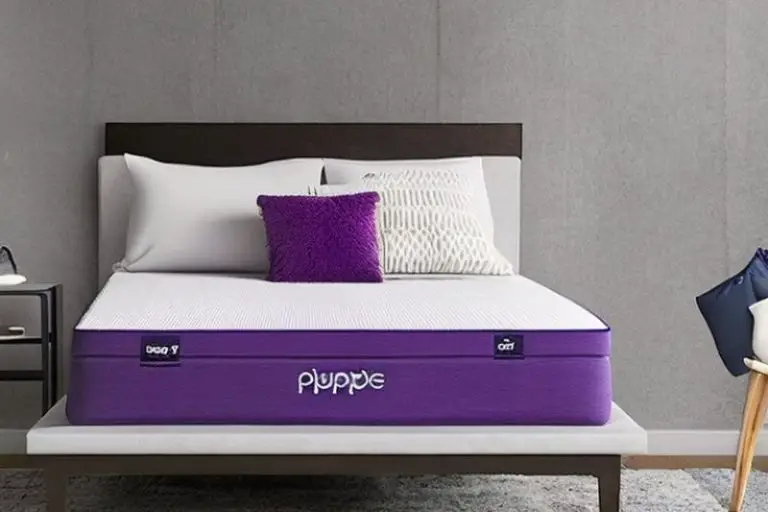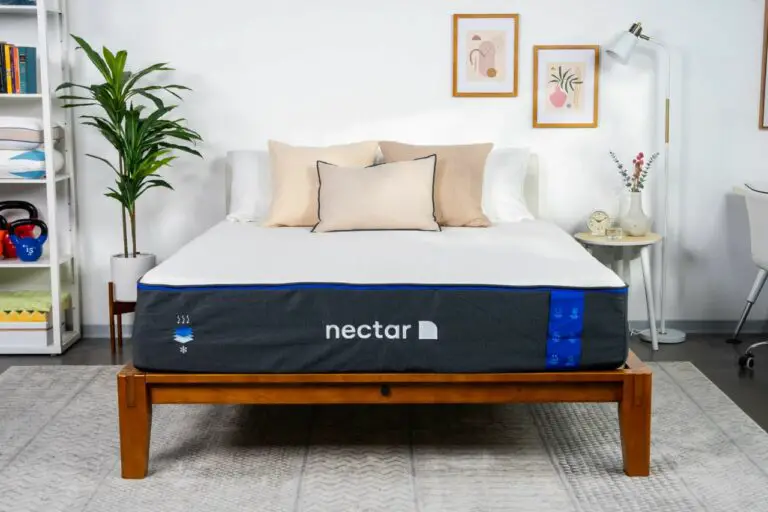Why Does My Mattress Make Me Sweat? (EXPOSED)
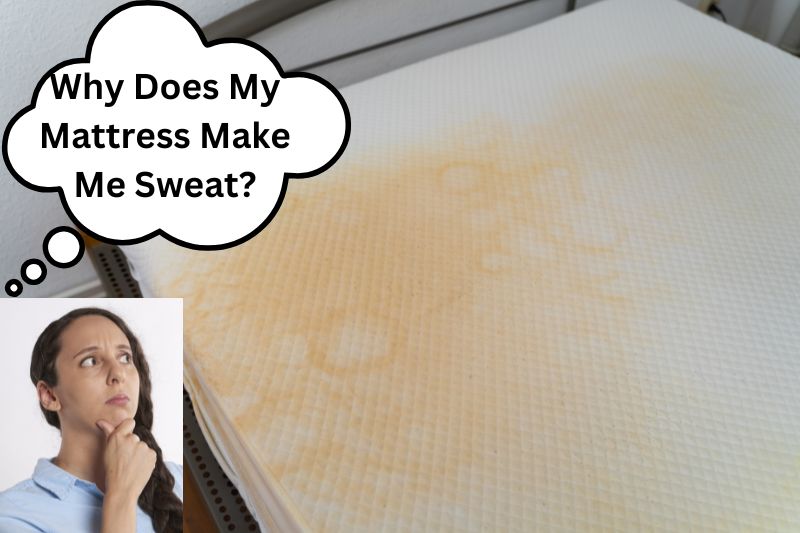
Why Does My Mattress Make Me Sweat?
The best mattress for avoiding night sweats is a mattress made of breathable materials such as latex, memory foam, or hybrid foam.
These materials allow air to circulate and help keep you cool and dry throughout the night.
Additionally, look for mattresses with cooling features such as gel-infused memory foam or cooling covers. These features help to further reduce the risk of night sweats.
At first glance, it might seem inconceivable that your mattress could be emitting any pongs. After all, you’ve been sleeping on it for years – and yet you’re still not aware of its distinctive aroma?!
Yet, there may be a veritable plethora of reasons why you are experiencing bodily odours in addition to your mattress’ distinct aroma.
What Causes Mattress Sweating and How to Avoid It
For many individuals, a chore such as stuffing a mattress into a carport can be a daunting experience. The individual must contend with lifting heavy boxes and dragging materials along the ground; all while sustaining their own weight!
If you want to avoid having your mattress sweat like an overheated poker table on game night, consider investing in a water-based foam – these products are perfect for contouring to any shape and providing exceptional comfort during sleep.
All of our mattresses utilize this critical component in order to provide optimal levels of support and comfort, which may result in perspiration.
If you experience excessive moisture on your bedding, it could be indicative of either faulty construction or degradation in material quality – both being detrimental factors that should be rectified immediately!
The Pros and Cons of Different Mattress Types and How They Affect Sweating?
Innocuous as it may be, a solid foundation is essential for an optimal night’s slumber. A mattress comprised of layers of foam and coils provides the ideal support for a restful sleep; however, this choice comes at a cost: it can lead to perspiration!
The amount of perspiration produced can vary from individual to individual.
Aside from the influence of genetics, age and weight are other factors that will determine how much you sweat while sleeping – even if your mattress is supportive enough!
If you must sacrifice comfort in favor of a sound slumber, consider investing in an airbed or inflatable mattress. Not only can they provide ample cushioning without affecting your circulation – they’re also extremely lightweight!
Why Does My Mattress Make Me Sweat?
Sweating while sleeping is a common occurrence, and it can be caused by a variety of factors. One of the most common causes of night sweats is a mattress that is too warm.
Mattresses are designed to provide comfort and support, but if they are too warm, they can cause your body temperature to rise and lead to sweating.
This is especially true for mattresses made of materials that retain heat, such as memory foam or latex.
Additionally, mattresses that are too thick or too soft can trap heat and cause you to sweat. If your mattress is too firm, it can also cause your body to overheat, leading to night sweats.
Additionally, if your bedroom is too warm, it can cause your body temperature to rise and lead to sweating. To reduce the risk of night sweats, it is important to choose a mattress that is the right firmness for your body and to keep your bedroom at a comfortable temperature.
There are a few potential causes for why your mattress might be making you sweat, which are detailed below.
Reasons:
1) Poor Air Flow:
One of the key factors in avoiding night sweats is ensuring that your mattress is made from materials that allow air to circulate freely. If there are obstructions, such as extra layers of padding, this will impede the flow of air and increase the risk of moisture build-up and sweat production.
2) Excessive Padding:
Another common cause of excessive sweating is due to the presence of excessive amounts of padding. This can be caused by mattresses that are too soft or too thick, both of which will result in an inability to regulate body temperature.
3) Faulty Construction:
If your mattress suffers from faulty construction, it may not be able to keep air and moisture away from your body. This can lead to excessive sweating and a host of other annoying bed bug problems.
4) Degradation in Material Quality:
If your mattress is showing signs of wear and tear, it may not be able to effectively dissipate heat or moisture. This can lead to an increase in sweating, as well as unpleasant body odours.
Fortunately, there are a few simple things that you can do to help avoid night sweats and the accompanying pongs.
The Benefits of Cooling Mattress Toppers and How They Help Reduce Sweating:
If your mattress is not sufficiently ventilated, you may experience perspiration or clammy heat. This can result in an unpleasant sleep environment and contribute to restlessness during the night and morning hours; subsequently affecting both mental fatigue and productivity.
To avoid these issues, a variety of cooling options are available to help alleviate excessive perspiration. These include gel-infused pads, cooling blankets and even memory foam filled ‘toppers’.
If you’re seeking relief from heat, there are numerous products available that can provide comfort without sacrificing support or durability Bed Fresh and Odor-Free:
Consider investing in a mattress that is odor-free and free of moisture – this will prevent your bedding from becoming stained or saturated!
In addition to providing an impeccable sleep environment, these products often come with cooling properties that can help regulate body temperature.
Which mattress makes me sweat?
There are a variety of potential causes for an individual to sweat while sleeping, including faulty construction or degradation in material quality.
If you experience excessive moisture on your bedding, it could be indicative of either one of these issues. In order to avoid sweating on your mattress, consider investing in a water-based foam or an airbed that is lightweight and comfortable.
When it comes to finding the right mattress, one of the most important factors to consider is whether or not it will make you sweat.
Sweating while you sleep can be uncomfortable and can even lead to health issues if it becomes a regular occurrence.
Unfortunately, some mattresses are more prone to making you sweat than others.
Memory foam mattresses are often the worst offenders, as they tend to trap heat and can make you feel hot and sticky.
Latex mattresses are also known to make people sweat, as they are often quite firm and don’t allow for much air circulation.
Innerspring mattresses are usually the best option for those who want to avoid sweating, as they are usually quite breathable and allow for air to circulate.
Hybrid mattresses are also a good option, as they combine the support of an innerspring mattress with the comfort of a memory foam mattress.
Ultimately, the best mattress for you will depend on your individual needs and preferences, but if you’re looking to avoid sweating, it’s best to avoid memory foam and latex mattresses and opt for an innerspring or hybrid mattress instead.
How to Keep Your Mattress Cool and Reduce Sweating?
To combat this, consider using an air mattress with a foam or latex surface. Often, these materials can be more breathable than traditional innerspring mattresses so that your body doesn’t overheat when sleeping on them.
In addition, keep a fan nearby to circulate air throughout your room and help to keep your mattress cool. Finally, make sure to place your bedding on a dry surface before you go to bed to avoid any moisture build-up.
Don’t forget about the settings on your air mattress – don’t skimp out when it comes to temperature control! Make sure you have it set to what feels most comfortable for you – even if it means sitting up and moving around from time to time!
Is it healthy to sweat at night in bed?
If you’re worried about sweating at night, don’t let your anxieties get the best of you. There is no evidence that excessive perspiration during sleep has any negative health impacts – provided it’s not accompanied by other activity during the day.
If you do experience excessive sweating, it’s important to consult a healthcare professional. They can help you identify the root cause of the problem and recommend a solution.
On the bright side, rapid evaporation caused by sweat helps keep the body cool during sleep. If you find yourself restless or hot upon waking, consider this as a sign of improved circulation and health!
Why does my mattress cover make me sweat?
A mattress protector, encasing your bedding, is an essential tool to keep away dust mites and allergens.
If you’re opting for one that’s hypoallergenic as well – which means it doesn’t contain any materials that can potentially cause disease – then you’ll likely be relieved at its effectiveness in warding off sweating.
The Benefits of a Mattress Protector:
Aside from providing an extra barrier against allergens and dust mites, a mattress protector can also help to keep your mattress cooler in the summer months. This is because it absorbs excess moisture and dissipates it over time.
Furthermore, a mattress protector can help to prevent skin irritation and bed sores – both of which are common problems associated with sweating at night.
How to Keep Your Mattress Cool Without a protector?
Most people stop using a mattress protector once they reach their desired level of comfort.
Plenty of individuals don’t even realize the importance of resting on their mattress coverings.
After all, they might feel reassured by the fact that the sheets are snugly enveloping them during slumber.
However, while this protective layer prevents irritations such as rashes or pressure points from coming into play when sleeping; it won’t necessarily guard against perspiration!
The truth of the matter is that without a coverlet protecting your bedding from moisture – whether caused by sweat or dampness – your mattress may end up displaying its own peculiar odors once again!
Conclusion:
The cause of your nighttime perspiration? The mattress! And no, it isn’t because you’re feverish – it’s because of the mattress’ inability to wick away moisture from your body.
When you make the switch from your old mattress to one that supports better sleep, you must also change your lifestyle. In order for your body to get accustomed to its new accommodations, it may require some trial and error along the way.
In some cases, if you possess sensitive skin or are prone to skin conditions such as eczema or acne, it may be advisable to stay away from mattresses altogether in favor of box springs or other alternatives.

